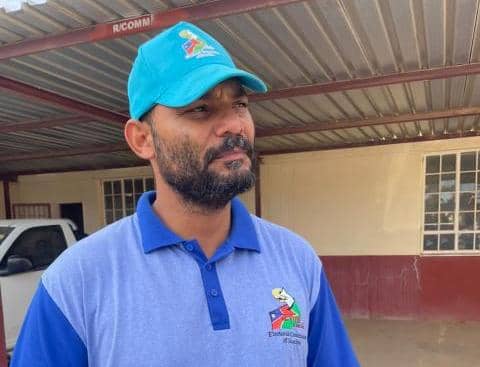CABINET approved an Education Sector Policy for the Prevention and Management of Learner Pregnancy during its latest meeting last month.
The aim of the policy is to improve the prevention and management of pregnancy of girls who are still going to school, with the ultimate aim of decreasing the number of such pregnancies and increasing the number of school-going parents who complete their education.
Official statistics on pregnancy-related dropouts in Namibia for 2007 show that 1 465 teenagers dropped out for this reason – 96 per cent of them girls. ‘Comparisons with other data from a variety of sources indicate that these numbers substantially underestimate the true extent of the problem,’ a statement issued by the Ministry of Information and Communication Technology said this week.’Education is both a human right in itself and an indispensable means of realising other human rights. To meet Vision 2030, Namibia needs a new policy on learner pregnancy that will make a real and sustainable difference in the lives of children and their children. ‘The policy does not substitute its judgement for that of the family, as family and cultural values are a core component of the guiding principles set out within this policy,’ the statement said.The policy places a strong emphasis on prevention, which includes the encouragement of abstinence and the communication of values, such as gender equity and respect for individual autonomy. Where a pregnancy does occur, the focus is on supporting the school-going mother to complete her education while ensuring that the infant’s health and safety are protected, and on encouraging the school-going father to have direct and regular involvement with the infant and to provide a fair share of financial support. The policy emphasises flexibility, to take into account the health of the pupil and the infant, different cultural values, different levels of family support and the point in the academic calendar when the baby is born. Statistics show that pupils who continue their education are more likely to delay subsequent pregnancies, supporting the need to return a learner-mother to the education system as soon as the situation permits. Several young mothers interviewed vowed that they would make every effort upon their return to school to discourage other girls from following their example.Each situation will be assessed and evaluated individually, with sensitivity to the pupil’s health, financial situation, options for child care, family support or lack of support, the timing of the delivery in relation to the school calendar and the needs of the newborn child. Key interventions include: information, counselling, and support to both male and female teenagers who are about to become parents, focus on the health of the pregnant schoolgirl, the young mother and the infant after birth.The new policy is applicable to all primary and secondary schools in Namibia, including Government-subsidised private schools.All schools, whether subsidised by Government or not, are morally and ethically obliged to consider the best interest of pregnant schoolchildren and their infants after birth.’The policy is intended to represent the direction the Ministry wants to take over the next 10 years. It is intended that the policy will assist Namibia in striving to achieve the Millennium Development Goals and the objectives of Vision 2030,’ the statement said.
Stay informed with The Namibian – your source for credible journalism. Get in-depth reporting and opinions for
only N$85 a month. Invest in journalism, invest in democracy –
Subscribe Now!










